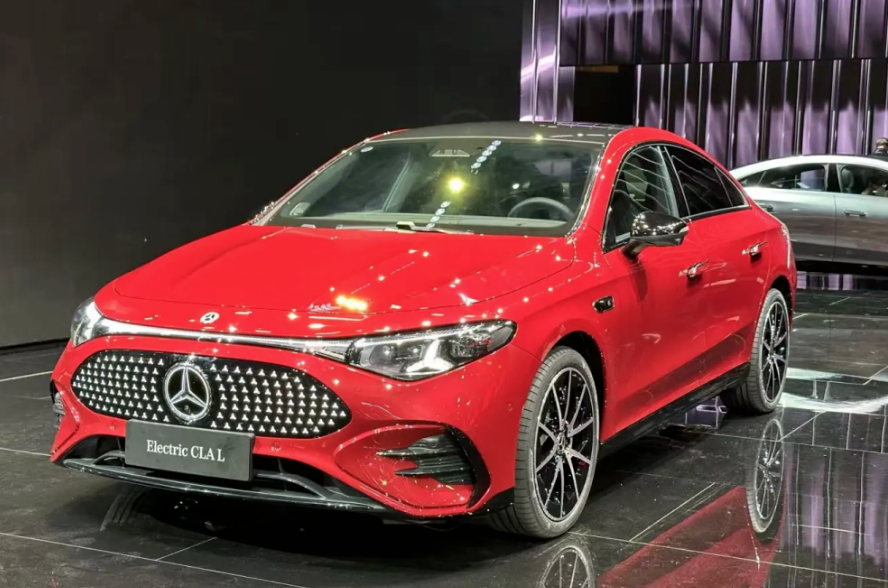According to media reports and institutional data, Mercedes-Benz’s retail sales in China’s market reached 26,653 units in July, a month-on-month decline of over 40%. This marks the first time in nearly five years that its monthly sales have fallen below 27,000 units. Over the past three years, the second-lowest monthly sales figure for Mercedes-Benz stood at 36,000 units, which is more than 9,000 units higher than July’s sales.

Retail sales exclude import vehicle sales. Mercedes-Benz’s operations in China are conducted through Beijing Benz and Fujian Benz. Data shows that Beijing Benz sold 24,968 units in July, ranking 24th among domestic passenger car manufacturers, while Fujian Benz sold 1,685 units, ranking 81st domestically. When viewed as a single brand, Mercedes-Benz ranked 22nd in domestic sales in July, dropping 6 places compared to June. Looking at specific models, no Mercedes-Benz model sold over 10,000 units in July. The best-selling model was the Mercedes-Benz E-Class with 7,700 units sold, followed by the Mercedes-Benz GLC with 7,514 units and the Mercedes-Benz C-Class with 6,870 units. Other models performed poorly.
In today’s automotive market, the new energy wave is sweeping across the industry with overwhelming momentum. China’s new energy vehicle (NEV) sector has achieved rapid development. In the first half of 2025, retail sales of narrow-sense passenger vehicles in China reached 10.901 million units, a year-on-year increase of 10.8%, among which NEV retail sales hit 5.468 million units, a year-on-year surge of 33.3%, with a penetration rate exceeding 50%. Domestic NEV brands, relying on advanced technologies and innovative concepts, have shines brightly in the market, exerting tremendous sales pressure on traditional luxury brands. Take the AITO M9 as an example: it has ranked first in sales among models priced above 500,000 yuan for six consecutive months. Its outstanding intelligent driving assistance system and luxurious interior configurations have attracted numerous consumers.
In contrast, Mercedes-Benz’s pace of transformation in the electric vehicle sector appears somewhat slow. Although Mercedes-Benz launched its new electric brand EQ as early as 2016, the sales performance of its electric models has been unsatisfactory. In the first seven months of 2025, the best-selling Mercedes-Benz new energy model was the EQB, with only 1,871 units sold. The EQE SUV followed with 1,713 units, the EQA with 1,127 units, and the EQE with 866 units, totaling just 5,577 units. The brand premium that once made Mercedes-Benz proud in the era of fuel vehicles seems difficult to sustain in the electric vehicle sector. When purchasing electric vehicles, consumers pay more attention to factors such as range, charging speed, and intelligent configurations, but Mercedes-Benz has not demonstrated obvious advantages in these aspects, leaving its electric models at a disadvantage in market competition.
Mercedes-Benz has long maintained a high-price stance relying on its brand influence. However, changes in the current market situation have gradually invalidated this pricing strategy. Flagship models such as the Mercedes-Benz C-Class and E-Class have seen significant price cuts, but even such substantial reductions have failed to effectively drive sales growth. Behind this phenomenon, on one hand, consumers are adopting a wait-and-see attitude amid the market-wide price reduction trend, expecting even lower prices; on the other hand, competitors are also continuously lowering their prices, making Mercedes-Benz’s price-cutting advantage less prominent. Furthermore, frequent price cuts have damaged Mercedes-Benz’s brand image to some extent, causing consumers to question its brand value.
Faced with the rapid development of the NEV market, Mercedes-Benz has not remained idle. Earlier this year, it was reported that Mercedes-Benz would discontinue the EQ series and integrate it into other regular model lineups. In March, the all-electric Mercedes-Benz CLA was unveiled, scheduled to go on sale in autumn, with pre-orders already open. In June, Mercedes-Benz officially announced a dual-track strategy for fuel and electric vehicles, planning to launch at least 18 new models next year, including 10 new energy models (including pure electric and plug-in hybrid vehicles). These moves indicate that Mercedes-Benz is accelerating its electrification transformation, but whether it will lead to tangible changes in market performance remains uncertain.
Mercedes-Benz’s transformation speed still seems unable to keep up with the pace of market changes. Compared with domestic NEV brands, Mercedes-Benz lags slightly in technological innovation in electrification and intelligentization. Its performance in key areas such as battery technology and intelligent driving assistance systems is not outstanding. Facing such a severe market situation, the question of how Mercedes-Benz should proceed in the future has become a focus of attention for both its management and consumers.


